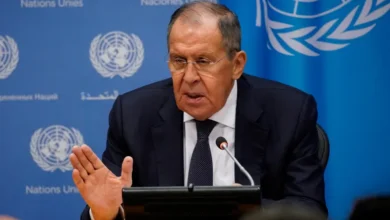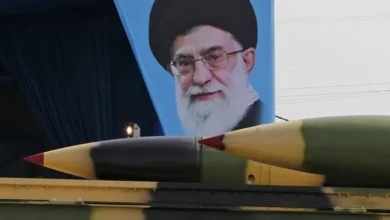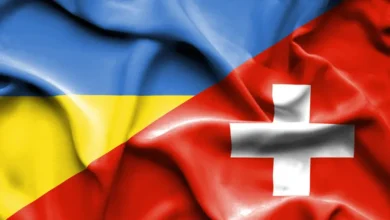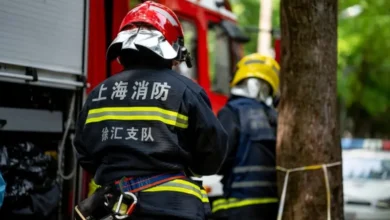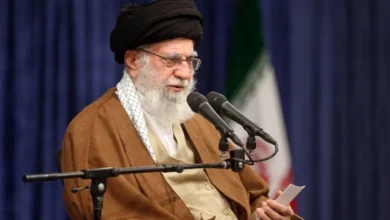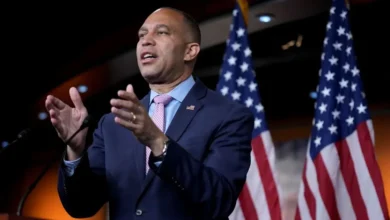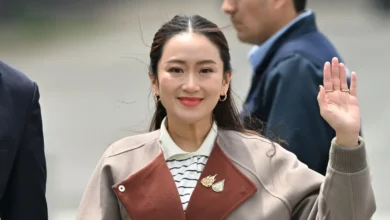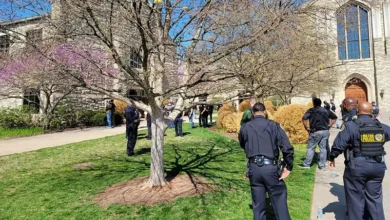‘Academic decline‘: Why are university professors being expelled in Iran?
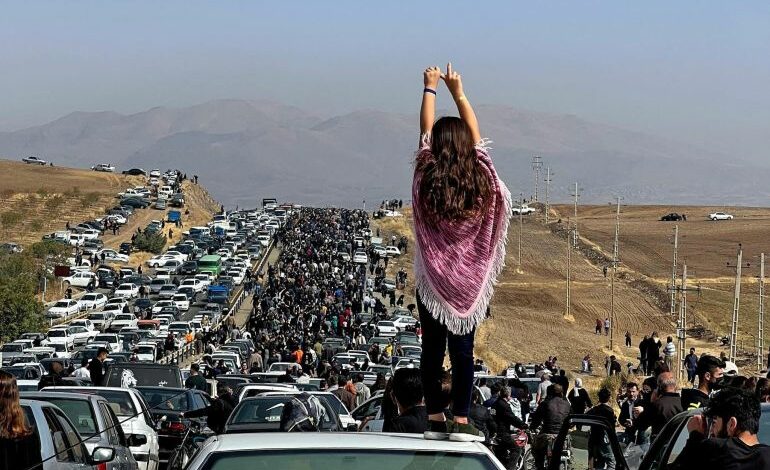
A number of professors in some of Iran’s most prestigious universities have been expelled, prompting a debate over whether their terminations are related to support for last year’s nationwide protests.
The protests began in September after 22-year-old Mahsa Amini died in police custody following her arrest by the morality police for alleged non-compliance with a mandatory dress code for women.Street protests died down months ago, but they have continued to have repercussions, especially in universities across Iran, many of which saw acts of civil disobedience from students and professors during the demonstrations.
Who was terminated?
Arguably the most high-profile academic who has been sacked is Ali Sharifi Zarchi, a professor of bioinformatics and artificial intelligence at Iran’s top institution of higher education, the Sharif University of Technology.
He announced his expulsion last week on X, the platform formerly known as Twitter.
He later refuted an account by a university official that he was let go for not applying for a contract extension. He posted documents showing otherwise online and said: “The truth has been sacrificed for politics.”
Several professors at other top universities, including the University of Tehran, have also been expelled this month. Local media reported that more than 50 academics have been let go since President Ebrahim Raisi took office two years ago. The number has not been confirmed by the government.
Why were they fired?
While the universities themselves have not linked the expulsions to the protests, a number of users online, former officials and local media on different sides of the political spectrum have made the connection.
Hossein Shariatmadari, editor-in-chief of the ultraconservative Keyhan newspaper, whom Supreme Leader Ali Khamenei appointed, defended the expulsions in an editorial this week by listing professors who have been expelled in the West for political reasons.
Academics “who had not only supported riots and rioters last year but had also in some cases participated in crimes against the wronged people of Iran alongside rioting thugs” were given, he said, “the most trivial punishment, considering their foul and inhumane actions”.
The Ministry of Interior, now headed by Islamic Revolutionary Guard Corps commander Ahmad Vahidi and the main entity in charge of handling the unrest last year, issued a rare reaction to the expulsions on Monday.
It said the Ministry of Science, Research and Technology and the universities were correct to take action against the professors in line with their “revolutionary duty” because the professors had succumbed to “academic decline” and were “tainting universities” with a political bias and media exposure that could work against national interests.
Speaking at a press conference on Tuesday, Raisi said if some people wanted to break the law, the university itself must not allow it.
How did people react to the expulsions?
Reactions to the developments at the universities have varied with proponents praising the expulsions and critics saying universities are being negatively transformed.
There have been unconfirmed reports that thousands of new figures who are closer to the establishment are being placed in universities across the country.
Several people, including two presenters on state television, have been selected as new visiting professors at Sharif University, prompting a backlash online.
Amir Hossein Sabeti, who has just quit a state television programme to teach “Islamic revolution” at Sharif and present his candidacy for upcoming parliamentary elections, defended his new academic position and railed against foreign-based media for describing the developments as an effort to “cleanse” universities of dissident voices.
On the other hand, some local media, including the Ham-Mihan newspaper, whose journalist Elaheh Mohammadi was arrested while covering the protests, said the developments at universities resemble a second “cultural revolution”.
Iran underwent an initial cultural revolution in the 1980s in the aftermath of its 1979 revolution. It consisted of a large-scale purge of academics considered to be influenced by Western and non-Islamic beliefs.
Meanwhile, the fact that the Interior Ministry had issued a statement about the expulsions prompted some Iranians to make a connection with the security bodies.
“Perhaps the illegal orders of the national security council are the origin of some of these expulsions?” posted Mohsen Borhani, a law professor at the University of Tehran who has been vocal about the protests for the past year.
Ali Akbar Salehi, a former foreign minister and nuclear chief, was among the most senior former officials to criticise the recent developments, including the people appointed to replace the sacked professors.
